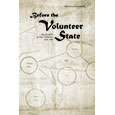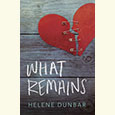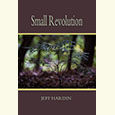The Uncertainty Principle
In Nicole Krauss’s Forest Dark, two Americans journey to Israel to resolve personal crises
In Forest Dark, Nicole Krauss tells parallel stories of American Jews who lose their ways and travel to Israel to re-discover life’s purpose. The novel’s title echoes the opening lines of Dante’s Inferno, an apt touchpoint for characters who feel “consumed” by darkness. Oddly, though, they do not expect their journeys to bring lightness and clarity. Having spent decades imposing order on the chaos of existence, they hope to float on the gentle waves of uncertainty in Israel.
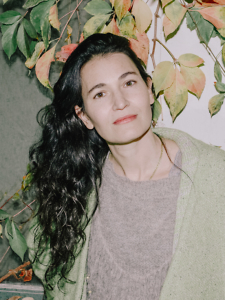
Jules Epstein, a retired Manhattan attorney, divorces his wife of more than three decades and proceeds to divest himself of worldly possessions. His parents have recently passed away, and Epstein feels unmoored but free, his vision elevated. He decides that a trip to Israel will facilitate his quest for peace, though he can’t explain why. His three children believe he’s suffering a mental breakdown, but Epstein is invigorated. A man “who avoided believing in anything he could not touch or feel or measure,” Epstein now opens himself to the mysterious.
The other protagonist is Nicole, a novelist from Brooklyn. (Her first name, used rarely, and residence are among her resemblances to the author.) She has lost trust in the institutions that have formed the bedrock of her existence: her marriage and her career. The latter loss appears more traumatic, as it cannot be explained away as the unfortunate consequence of marital doldrums. Her existential angst reaches a critical point “one autumn afternoon when I came through the door of the house I shared with my husband and our two children, and sensed that I was already there.”
Seeing her double causes Nicole to question the nature of observed reality. “Some sort of error had occurred, neurological or metaphysical,” she thinks. “Something had become misaligned.” The chapters focused on her, which are narrated in the first person, are more personal than Epstein’s third-person episodes and create a vertiginous reading experience: the living Nicole Krauss has created a fictional “Nicole” who has an uncanny encounter with a projected version of herself. The Nicole narrator professes a fascination with theories of the “multiverse,” whereby the universe continually splits into parallel worlds. Small wonder that she struggles to distinguish reality from fantasy.
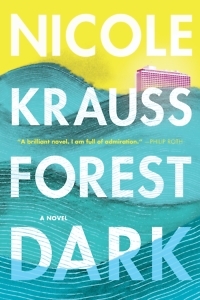 Like Epstein, Nicole feels that she can re-arrange herself in Israel, specifically at the Tel Aviv Hilton, “a massive concrete rectangle on stilts,” which she feels is her spiritual home. As a pretext for traveling to Tel Aviv, she tells her family she’s writing a novel set in the Hilton, but privately she acknowledges that in following this urge she is drifting from “the shore of reason.” But any uneasiness is counter-balanced by the joy of rejecting rationality as it’s wielded by philosophers. “I frankly hate Descartes,” she says. “The more he talks about following a straight line out of the forest, the more appealing it sounds to me to get lost in that forest.”
Like Epstein, Nicole feels that she can re-arrange herself in Israel, specifically at the Tel Aviv Hilton, “a massive concrete rectangle on stilts,” which she feels is her spiritual home. As a pretext for traveling to Tel Aviv, she tells her family she’s writing a novel set in the Hilton, but privately she acknowledges that in following this urge she is drifting from “the shore of reason.” But any uneasiness is counter-balanced by the joy of rejecting rationality as it’s wielded by philosophers. “I frankly hate Descartes,” she says. “The more he talks about following a straight line out of the forest, the more appealing it sounds to me to get lost in that forest.”
Among the unanswerable questions that Forest Dark addresses is the meaning of Jewishness. Krauss explores the topic by meditating on King David, a warrior who slayed thousands, and on Franz Kafka, a consumptive who imagined himself a cockroach. As Epstein and Nicole delve into the complexities of these icons, they learn that David was more than a “cold and calculating brute” and that a “cabal” of friends may have helped Kafka fake his death and move to Israel, where his tuberculosis cleared up and he found contentment among the Zionists. Would a new biopic on David make his story more accessible, or would it tarnish Jewish self-definition? Do Jews want Kafka, their poet of imprisonment, to breathe the free air of Canaan? Can anyone imagine Kafka tending garden in a kibbutz?
Krauss reveals that the process of self-invention is creative and continual, for nations as well as for individuals. As a friend explains to Nicole, the beginning of the Jewish people was the word: “we didn’t invent the idea of a single God; we only wrote a story of our struggle to remain true to Him and in doing so invented ourselves.” That origin story makes the depiction of metaphysical truth sound arbitrary, but, as a rabbi explains to Epstein, emptiness is not the absence of truth but “the necessary precursor to creation.” Epstein learns that the “vacancy” of his broken heart, which makes him feel bereft, “has the potential to be filled with the infinite.”
For all its abstraction and discursive sophistication, Forest Dark remains a suspenseful novel about characters who are lost in ways that go beyond metaphor. Questions about Epstein’s charitable gifts evolve into questions about his survival. Readers will wonder if he is simply lightening his material burden or preparing to leave the physical realm altogether. Nicole likewise finds herself adrift in a symbolic desert, but Krauss reminds readers that Israel is surrounded by actual deserts (and enemies) that are antagonistic to life. The humor here, as in Joshua Ferris’s To Rise Again at a Decent Hour, derives from the characters’ awareness of their own absurdity. “A wrong turn had been taken in human evolution,” Epstein thinks, and now we struggle to find the path home.
Forest Dark proposes that obtaining lasting happiness requires abandoning the search for intellectual understanding, but Krauss is equally aware that imposing meaning on life, “to create form out of the formless,” is the defining feature of humanity. What Epstein and Nicole need is not a permanent rejection of reason but a vacation from the compulsion to explain, to live a while amid “the unknown,” the “unformed and nameless life.” In rejecting standards of reason and convention, if only for a short period, they are granted visions that will mark them, and the reader, for a long time.

Sean Kinch grew up in Austin and attended Stanford and the University of Texas. He now teaches in Nashville.
